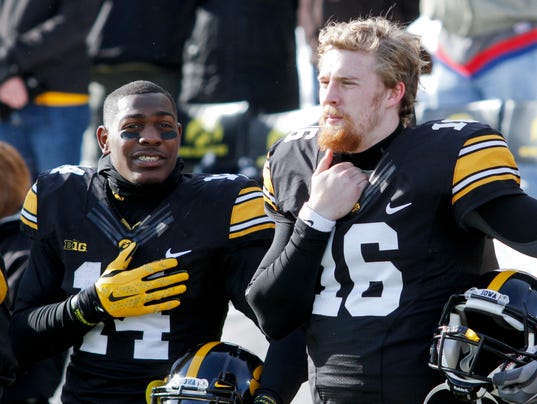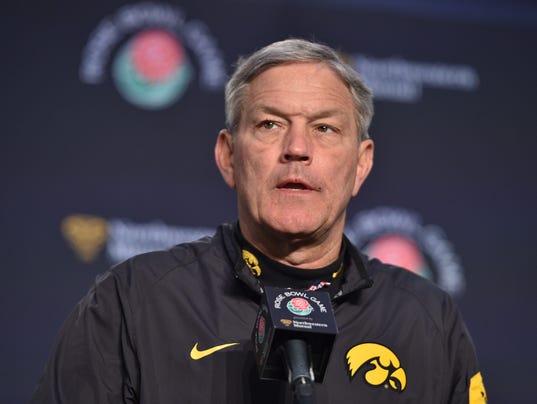In many ways the 2015 season was one of the, if not the, greatest season in Iowa Hawkeye football history. 2015 was the first time in the Hawks’ storied history that a team had finished the regular season undefeated. They were a 9 minute Michigan State drive away from crashing the college football playoff party. The Hawks return 14 starters in 2016 including cornerstones in Desmond King on the defensive side and C.J. “sunshine” Beathard at quarterback. The question Hawkeye fans everywhere are asking, can Iowa repeat its success from 2015?

Many early pre season polls have the Hawks ranked anywhere between 15-20 but I don’t pay to much attention to that. If you take a look at the 2016 schedule for the Hawks all of their toughest games are at Kinnick stadium. Those games include: Wisconsin, Michigan, and the fighting Harbaugh’s of Michigan. Home field advantage should pay dividends in these games. However, the Hawks still need to show up ready to play in these crucial games because their opposition will be ready to pounce on the Hawks if they are not. A prime example of that would be the rose bowl, from the very beginning I thought Iowa came out flat and the Stanford Cardinal and standout running back Christian Mccaffrey made the Hawks pay from the get go.

One home game that I’m going to put Iowa on upset alert will be the Iowa state game. Upset alert is a game that the Hawks should win but could lose. Iowa State’s new coach Matt Campbell will be looking to make a statement early in his career and nothing would do that more than a road win at their arch rival Iowa Hawkeyes. If Iowa simply plays up to their potential there is only one game that I can see the Hawks losing, and that would be to Harbaugh’s Michigan Wolverines. This November night game will be a classic hard hitting Big Ten brawl. The Michigan Wolverines have more talent than just about anyone in the Big Ten and in the country. Jim Haurbaugh’s arrival has resurrected the program from mediocrity. Almost the same as “New Kirk” has for Iowa.
I have the Hawks winning the Big Ten West once again this year and going back to the Big Ten Championship where they will meet back up against Michigan and avenge their only blemish on the season. From there, it’s a toss up. With that resume at 12-1 and Big Ten Champs I would think that the College Football Playoff Committee would have no reasons to keep Iowa out of the four team party.

The answer to the question I asked before is yes. The Hawks will live up to the hype in 2016 and it is something many players are embracing. Desmond King’s decision to forgo the NFL draft and come back for his senior season will prove to be huge for this bunch. King is the first EVER Jim Thorpe award winner to come back to school, all other winners of this award have either graduated or chosen to declare for the NFL draft. This Iowa team knows that the target will be on it’s back this year, I believe it is something that they will embrace. They can’t play the underdog role as they did last year but they don’t need to. 2015 proved to the players and fans that the Hawks have what it takes to succeed. The confidence built last season will boil over into this year, while these Hawks will still be hungry and strive to better themselves after the way the 2015 season ended.


